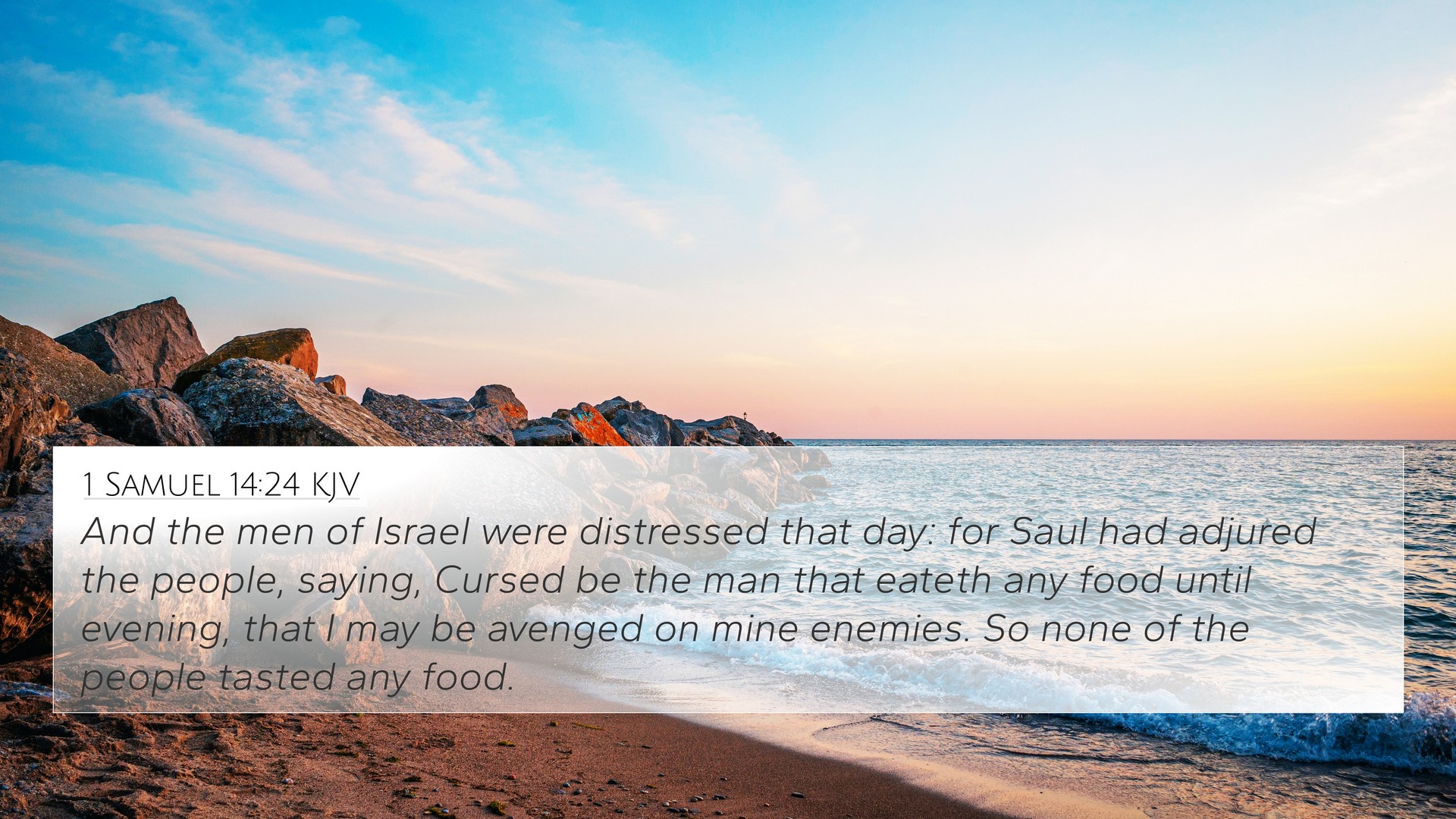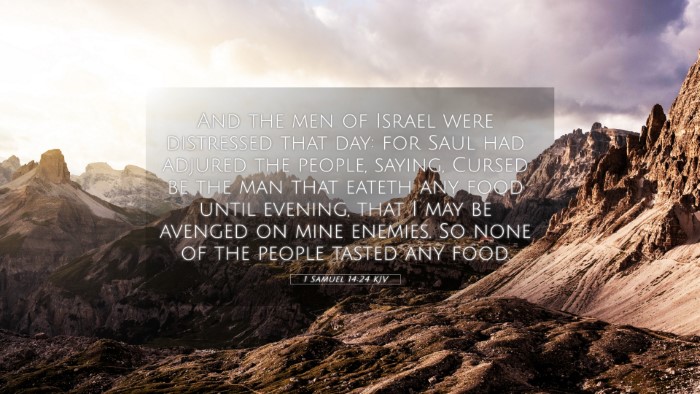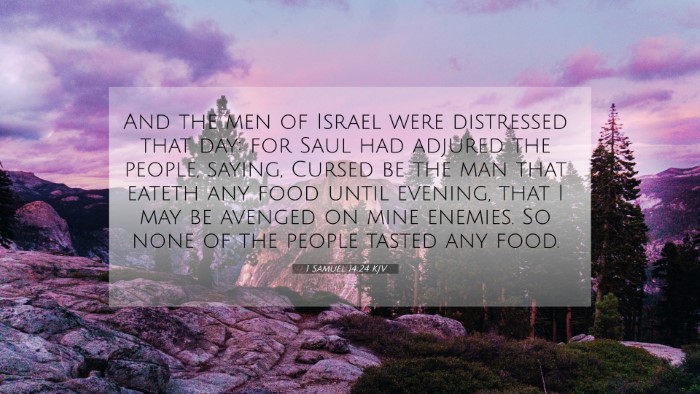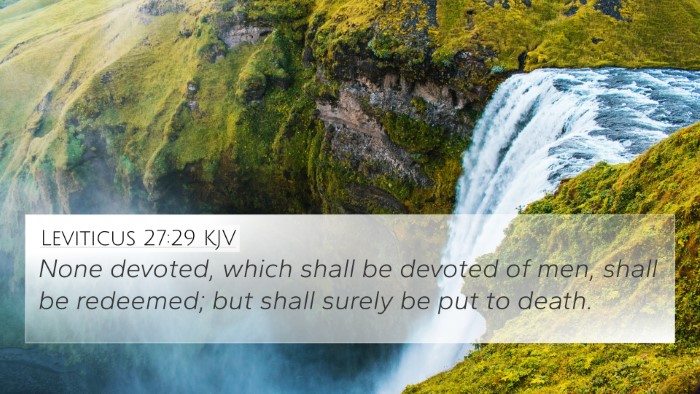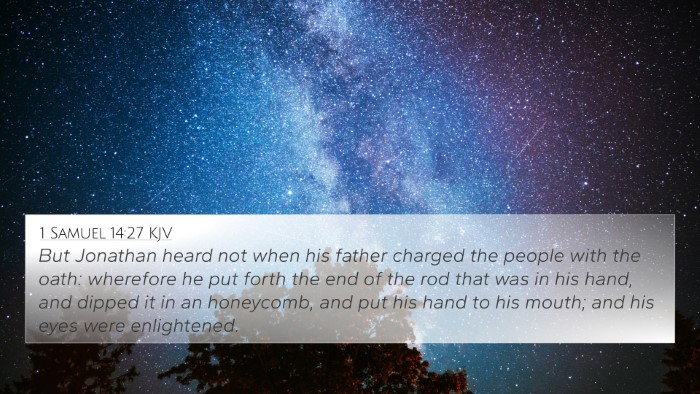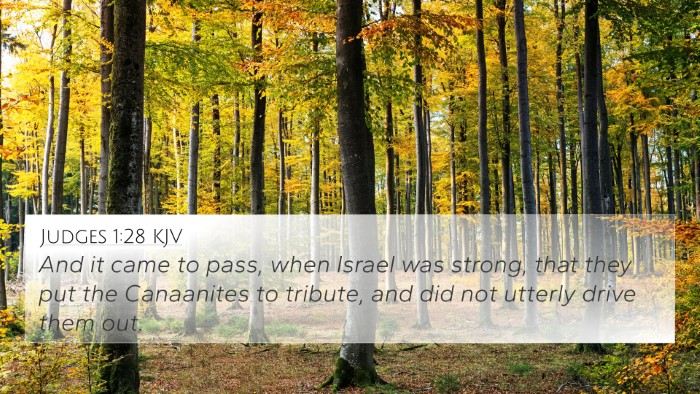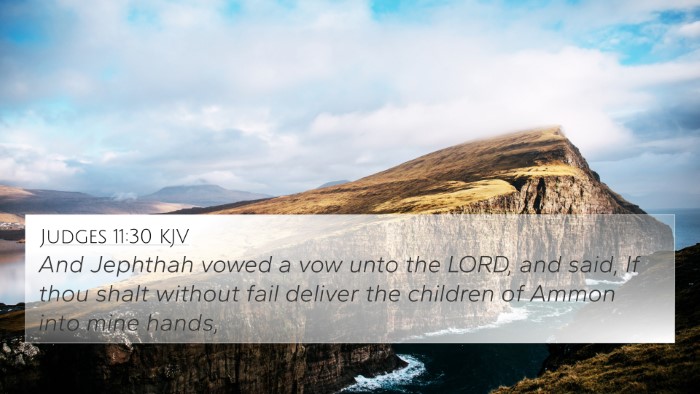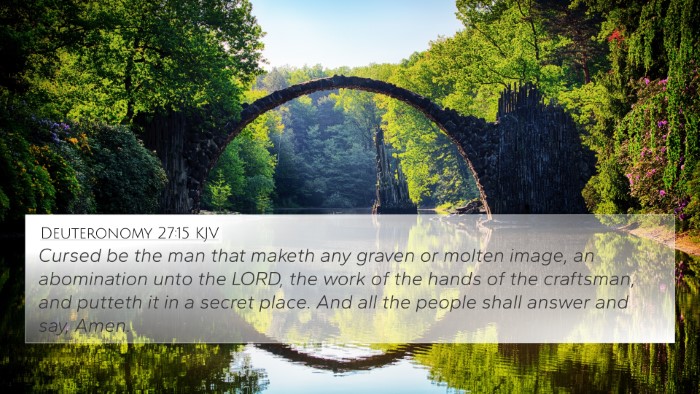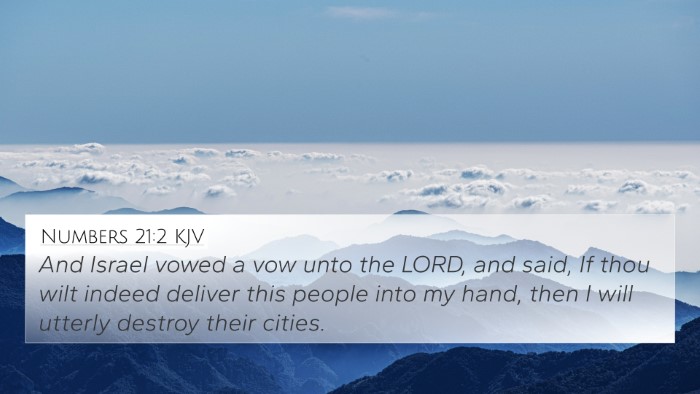Understanding 1 Samuel 14:24
This Bible verse reads: “And the men of Israel were distressed that day: for Saul had adjured the people, saying, Cursed be the man that eateth any food until evening, that I may be avenged on mine enemies. So none of the people tasted any food.”
Summary of the Verse
1 Samuel 14:24 captures a critical moment in the early reign of King Saul. The verse highlights Saul’s command to his troops that they should not eat until evening, which leads to distress among the people. This command appears to stem from Saul’s desire for vengeance against the enemies of Israel, illustrating the emotional and physical toll of leadership decisions during warfare.
In-Depth Analysis
- Leadership and Authority: Saul’s decision to curse anyone who eats reflects his authority as king. However, it also raises questions about the wisdom of such mandates in times of stress.
- The Role of Oaths: The curse serves as a warning against disobedience, suggesting that oaths made in the heat of battle can have severe consequences for those who are simply trying to survive.
- The People’s Suffering: The distress of the Israelites emphasizes the burden placed on them by Saul’s commands, portraying the struggles faced by soldiers in ancient warfare.
Commentaries Overview
Matthew Henry: Henry comments on the consequences of Saul’s rash oath, noting that it illustrates a lack of consideration for the well-being of his men. A leader’s decisions need to support and nurture their followers rather than exhaust and burden them.
Albert Barnes: Barnes elaborates on the implications of Saul’s curse, explaining that, while intended to motivate the troops, it instead led to their fatigue and weakened morale. He points out the irony of seeking vengeance through restrictive measures that ultimately hindered the army.
Adam Clarke: Clarke focuses on the impact of dietary restrictions on soldiers’ performance. He infers that Saul’s leadership style and the imposition of such oaths could result in grave consequences in battle, as the men were too weak to fight effectively.
Related Bible Verses and Cross-References
- 1 Samuel 14:28 - Discusses Jonathan's discovery of the honey, which provides insight into the consequences of Saul's oath and the relief found in sustenance.
- Proverbs 12:18 - Offers wisdom about the power of words and commands, supporting the theme of careful leadership.
- Matthew 5:37 - Highlights the importance of being cautious with oaths and promises, aligning with the warnings from Saul's actions.
- 1 Corinthians 9:25 - Discusses the need for self-control which resonates with the physical endurance required in battle.
- Ecclesiastes 5:2 - Focuses on the peril of rash vows, paralleling Saul's hasty command.
- 2 Samuel 2:14 - Relates a future conflict where the consequences of leadership decisions add complexity to warfare.
- Galatians 5:13 - Discusses the liberty of believers which contrasts Saul’s bindings on his men.
Insights on Leadership in Scripture
This verse and its implications encourage reflection on what it means to lead effectively. Biblical leaders often faced moral and ethical dilemmas, and cross-referencing with various passages can provide deeper insights into the characteristics of a responsible leader:
- Joshua 1:9 - Encourages strength and courage in leadership.
- Philippians 2:3 - Promotes humility over self-interest in leading others.
Thematic Connections Between Scriptures
Understanding the connections between Bible verses is key to a comprehensive biblical study. 1 Samuel 14:24 serves as a poignant reminder of the impacts of leadership decisions. Exploring the narratives of leaders such as Saul, David, and even Jesus illuminates how scripture deals with authority, obedience, and communal well-being.
How to Utilize Bible Cross-Referencing
When studying this verse, consider the following methods for cross-referencing:
- Identify thematic elements: Look for common themes such as leadership, sacrifice, and obedience.
- Use a Bible concordance: Find words or concepts in this verse that connect to others elsewhere in scripture.
- Practicing comparative Bible verse analysis: Analyze how the consequences of oaths affect leadership in various testimonies throughout the Bible.
